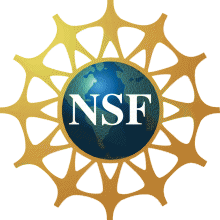Most of the things we use in everyday life are discovered or analyzed in laboratories by scientists, chemists and other investigators. They use science, math and other skills to discover, invent and research substances and products that will make life ever easier and safer. Some of these people who contribute to getting the job done are deaf or hard-of-hearing scientists or lab technicians.
Using your analytical, science, technology and math skills as you learn your way around a laboratory can take you down many paths. With a degree in laboratory science technology, get ready for many exciting opportunities.
- You can work to protect our environment.
- You can measure and analyze the quality of food products that feed our nation.
- You help investigate a crime by analyzing the physical evidence.
- You can conduct experiments that result in new medications and research production processes that help create new cars and other methods of transportation that can reduce our dependence on oil.
- You can join the ranks of hundreds of deaf and hard-of-hearing people, who, since the middle of the 18th century, have been involved in solving the scientific problems that advance our society.
Is Laboratory Science Technology the right career for you?
Think about what you like to do and what you are good at. Do you like to discover things, analyze things, solve problems?
Laboratory workers
- are inquisitive
- are problem-solvers
- like to experiment
- are rational, methodical, logical and analytical
- are practical, persistent and independent
- enjoy teamwork
- want to make a difference in the world
If all or some of the above apply to you, you may want a job that requires working in a lab. You will also need strong communication skills to share the information you will find with fellow workers and the general public.
High school students thinking about majoring in laboratory science technology should prepare by taking as many math and science courses with labs as possible, to begin feel comfortable using lab procedures.
Laboratory Science Technology jobs are found in business, industry, government, education and research. When investigating your career options, think about your individual strengths and interests, your abilities related to the job, your education and financial goals, and the projected growth in your career field of choice.
Famous Deaf Laboratory Scientists in History
Guillaume Amontons, French Physicist 1663 – 1705
Developed some of the first barometers and thermometers.
Charles Bonnet, Swiss Naturalist 1720 – 1793
Discovered reproduction without fertilization in aphids.
Sir John Warchup, British Nobel Laureate in Chemistry 1917
Won the Nobel Prize in 1975 for his work with cholesterol.
Tilly Edinger, American Paleoneurologist 1897 – 1967
Studied fossils in Europe and in Amerca and brought two diverse areas of paleontology and neurology together.
Harold J. Conn, American Bacteriologist 1886 – 1975
Discovered that soil bacteria increased while soil is frozen instead of decreasing as expected.



